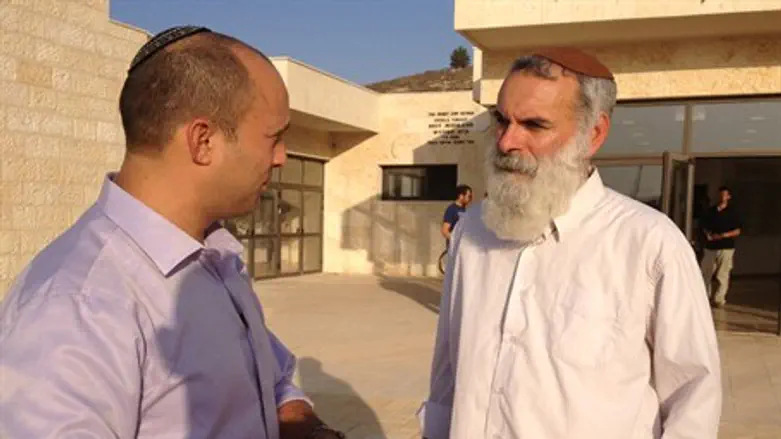
Rabbi Avichai Ronsky, Dean of Itamar Yeshiva and a confidante of Bayit Yehudi head Naftali Bennett, explained in a post on his Facebook page that the failure to elect a religious Zionist chief rabbi does not necessarily prove that religious Zionism suffers from a problem on the political level.
The matter is at the center of a debate in the religious Zionist camp, and some voices blamed Bennett for failing to choose good candidates that could unite many religious Zionists around them, early on, resulting in a "victory" for the hareidi camp.
Rabbi Ronsky, who is a former Chief IDF Rabbi, said that in an interview on a hareidi radio station, he was told that the religious Zionists “have proven once again that you are divisive and unable to unite around a single candidate for the chief rabbinate.”
Rabbi Ronsky responded by explaining that religious Zionism is not a body that discusses public issues and then reaches decisions. Rather, he explained, religious Zionism is a broad canvas that begins with the liberal Meimad and stretches all the way to the followers of Rabbi Kahane, and from the coastal plain to the hills of Itamar and Hevron.
"All of the groups within us have solid ideologies, and stand their ground stubbornly,” he explained. “This was very prominent in the elections for the rabbinate, in which one group fervently supported Rabbi Stav and the other completely opposed this, preferring even a hareidi candidate to the election of Rabbi Stav.”
Raabi Ronsky explained that quite simply, there were many people inside the religious Zionist camp who were ideologically opposed to Rabbi Stav, and others were ideologically opposed to Rabbi Shmuel Eliyahu, who was a leading candidate for Sephardic chief rabbi.
"We should not look for guilty parties among the politicians and the men of action without a thorough understanding of the spectrum of opinions in the religious Zionist camp and the tendency of each group to dig its heels into its position,” he said.
